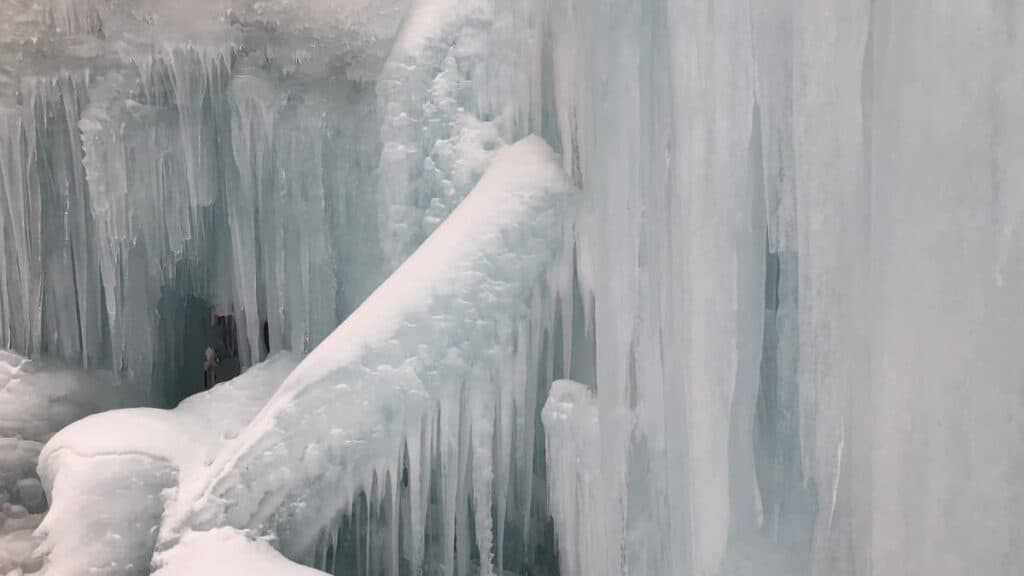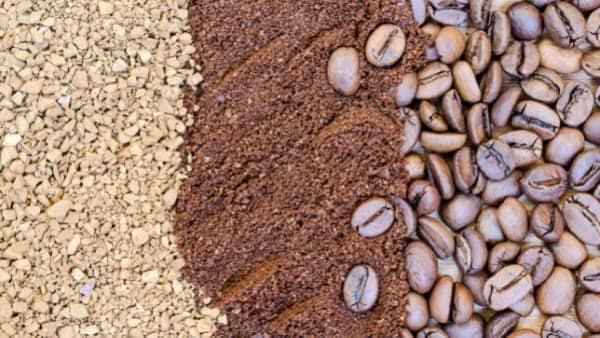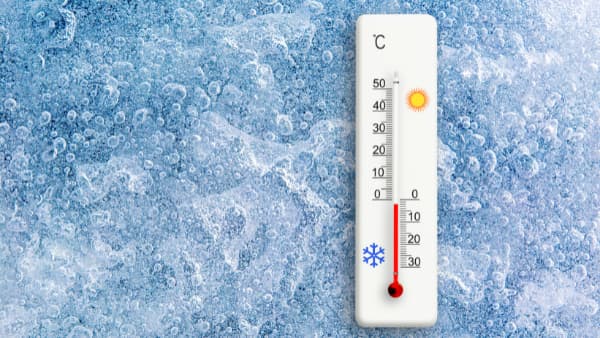Should You Store Coffee In The Freezer For Freshness?
You bought that big bag of coffee beans at the wholesale store and you want to keep it as fresh as possible. You know that stale coffee just doesn’t cut it. What should you do?
Maybe you’ve heard people encouraging you to keep the coffee in the fridge. But you’ve also heard experts that are horrified by the idea.
Is storing coffee in your freezer a good idea? Here are our coffee storage tips to get the perfect cup of coffee.

Coffee Bean Storage 101
To understand how you should store coffee, let’s take a look at the main enemies of coffee. These are the enemies that make the beans get stale faster and give you that off-tasting cup of coffee. We can break it down into three main threats:
- Light
- Moisture
- Oxygen
Light, moisture, and oxygen (or air) all damage coffee in different ways. When you store your coffee beans, you want to make sure you protect them from those damaging elements. Why are those elements such a problem?
Let’s think for a moment about what makes coffee taste so fantastic. What gives it the aroma and flavor we crave? It’s the oils and aromatic compounds in coffee. When the coffee beans are green, or unroasted, those oils are safely tucked away inside the beans.
When you roast those coffee beans, though, the cell structure changes. Chemical reactions start to happen. The volatile oils and compounds in roasted coffee beans start to break down and disappear. That’s good, since it releases important flavor and aroma compounds. But taken too far, and the coffee loses that essential flavor and aroma.
What makes those substances break down faster?
- Light breaks down the bean structure.
- Moisture, or humidity, makes the bean lose flavor.
- Oxygen in the air makes the aromas and flavor in whole coffee beans dissipate quickly.
If you want to find out more details on each of those points, check out this article about how to store coffee beans.
Changes in temperature also affect coffee beans. Let’s get to that point now as I answer the popular question if storing coffee beans in your fridge or freezer is a good idea.

Coffee In the Freezer – No!
Storing coffee beans in the freezer can seem like a good idea to keep it fresh. After all, you store vegetables and other food products in your freezer.
Why can’t you just pop your beans in the freezer next to your frozen dinners?
Freezer storage slows the process that makes your food stale, which is why you freeze them. Of course, since you’re not flash-freezing anything in your kitchen freezer, the process does still continue.
When we think of the three main enemies of coffee – light, moisture and oxygen, your freezer has some benefits.
The good thing about storing coffee in a freezer is that the beans are protected from sunlight, since most freezers are dark. And if you put your whole beans in a bag that keeps the air out, you don’t have to worry about oxygen.
But when considering freezer storage, moisture is a risk. Humid environments aren’t the ideal places for storing coffee beans. Although freezers seem quite dry, most freezers do have a certain amount of moisture.
Just think of the frost that forms on items that you’ve left for some time in the freezer. Getting freezer burn on your coffee is not something we want to even consider.
And you have to consider the smells that might be lurking in your freezer or refrigerator, since coffee quickly picks up any taste and odors that surround them.
If you decide to store coffee beans in your freezer, consider what other items you have there that will impart flavor to your beans. Also, the temperature fluctuations in a typical domestic freezer – especially if you store coffee beans on the freezer door – can affect the quality of the bean.

The Grinding Cold Debacle
You’ll find conflicting advice about whether or not to grind cold coffee beans. The main argument for it is that grinding cold beans affects the grind size.
All brewing enthusiasts know that grind size is vital to brewing the ideal cup. Coffee grounds with a uniform grind size extract the coffee evenly, which avoids the bitterness of over-extraction and the sourness of under-extraction.
Some studies suggest that grinding cold beans produces a more uniform grind size. Starting with the appropriate grind size is a great step towards a delicious morning mug of coffee.
But what effects do a prolonged stay in a freezer and the condensation that forms on the beans have on the brewed coffee?
An argument against coffee stored in a freezer is that the condensation on the beans as they come to room temperature can greatly affect the quality and taste.
We already mentioned those flavors and aromas lurking in your freezer than can give unpleasant tastes to your coffee grounds.
That’s why most experts say those factors make for a brew that’s a lot less tasty. There’s no hard research to back that up, so maybe you want to test out different storage methods yourself to find the best solutions.
In my case, I don’t freeze coffee, either in beans or ground coffee. Instead, I take other steps to make sure I’m brewing the freshest coffee and getting the best tastes. Let’s talk about that now.
What We Suggest Instead
So if putting the beans in the freezer is a way to invite brewing disasters, what can we do when we have more coffee than we can drink in a short period of time?
The best option is to buy the amount of coffee that you can drink in about two weeks’ time. If you buy and store your coffee in smaller batches, you will only have fresh coffee on hand. If you do need to buy in bulk, there is another alternative that doesn’t include putting your coffee on ice.
You can protect your beans from the harmful effects of sunlight, humidity and air by putting them in a food-safe airtight container. Since you want the sunlight to stay out, too, the containers should be opaque.

Because even in the farthest corners of your kitchen cabinets or pantry shelf, sunlight gets in at some point.
You can keep these types of coffee storage containers on your kitchen counter or coffee station with no problem, which makes them easy to reach when brewing.
How do you know if a resealable container is truly airtight? Check out our recommendations on the right coffee storage container for you.
What if you find yourself with some old coffee that tastes just a bit flat? Skip the heat altogether and make cold brew. Cold brew is a great use for old coffee because the longer steep time counteracts the slightly stale coffee by extracting more flavor.
Should I Never Freeze Coffee Then?
We can never say never. You might want to freeze coffee, but make sure you do it right.
Putting your bag of coffee in the freezer and dipping into it every time you want to brew some coffee is a definite no.
You’re introducing more air into the bag every time you do that and you accelerate the staling process. You’ll wind up with some pretty unpleasant brews.
How to successfully freeze coffee:
- Use small food-safe bags or an airtight container
- Freeze in small batches
- Eliminate excess air (vacuum packing would be ideal but is not practical, so at least pack the beans in small freezer bags)
- Freeze
- Defrost the beans by taking them out of the freezer the night before and letting them come to room temperature
Wrapping Up
If you buy coffee in smaller batches, you don’t need to worry about storage issues. Buy fresh roasted coffee in quantities you can drink within the next week or so. That way you don’t have to worry about the freshness dilemma.
But if you do decide to freeze your beans, be careful to freeze them in small quantities in an airtight container or bag, and defrost them in advance. Coffee stored properly gives you the freshest coffee beans and a delightful morning cup.

